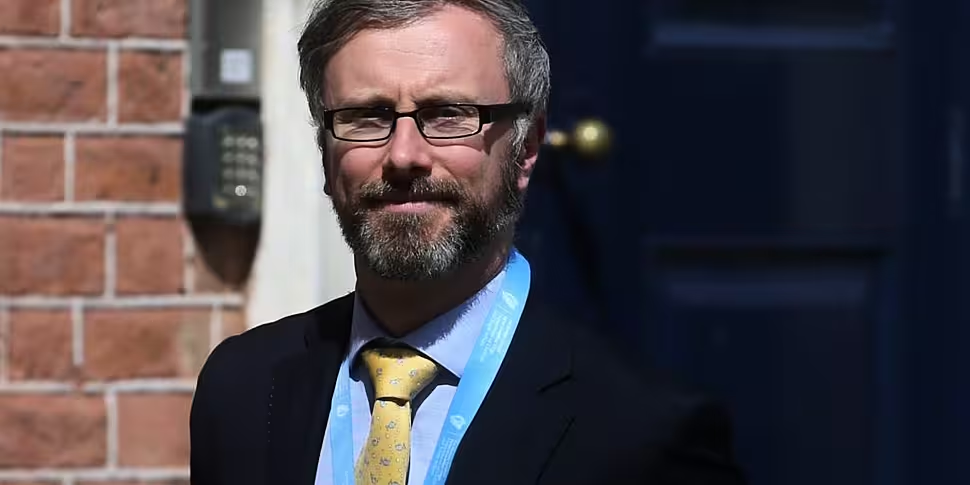The Minister for Children Roderic O’Gorman has said he "deeply" regrets his failure to communicate and engage with survivors of mother and baby homes.
The Seanad passed a controversial law on Friday relating to the records of the Commission of Investigation into Mother and Baby Homes.
The bill allows the transfer of a database of records to the child and family agency Tusla to help in tracing efforts.
Fear since emerged that many important files will be sealed for 30 years under existing legislation when the Commission's final report comes out next week.
Thousands of people have signed a petition calling for the seal to be lifted on an archive containing the records.
As of Sunday afternoon, 135,000 people had signed the petition, which was set up by adoptee rights group Aitheantas.
Petition to #UnsealTheArchives is at over 130,000 signatures now.
Sign and share 🙌 https://t.co/JYNhU9nHWX #RepealTheSeal #Stand4Truth— Holly Cairns TD (@HollyCairnsTD) October 25, 2020
Minister O'Gorman said it had been a difficult week and acknowledged the anxiety the bill has caused.
He told On The Record with Gavan Reilly: "It's been a difficult week and what I'm most conscious of is that this debate has created a lot of anxiety for the survivors of mother and baby homes.
"To the extent that things I have done or my failure to communicate or better engage with survivors' groups, I certainly regret that deeply.
"I am very aware now that when the Commission on Mother and Baby Homes report is published, we need to have very strong systems in place and support those groups that support survivors.
"I think when the report comes out it's going to be a very detailed report, it's going to be over 4,000 pages long and I think it will be incredibly difficult reading for everyone across our society but particularly for mother and baby homes survivors."
Minister O'Gorman said the legislation passed last week was about securing a database out of the archive and making it available for use.
He said: "The Commission of Investigation into Mother and Baby Homes was set up under a piece of legislation from 2004, the Commissions of Investigation Act 2004 and it's that legislation that states the archive is sealed once the commission reports.
"My department became aware of that over the course of the five years the commission had created a database which links the women that went into the mother and baby homes to their children.
"That database is formed from scanning thousands of documents from the various mother and baby homes and drawing them together in a computerised and searchable format.
"We identified, and the commission identified, that this would be an incredible resource, both for existing tracing services bur in particular in light of my commitment to bring in improved tracing legislation which is badly needed in this country."
He explained that it was not the legislation passed this week that would ensure that records would remain sealed, rather it was the 2004 Act.
He said that he has acknowledged that the way in which that 2004 legislation seals the records is "not morally feasible anymore" in terms of survivors access to early life information.
The Minister said "people deserve information about their early life", and that he would be engaging with the Attorney General and the Oireachtas Committee on Children, Disability, Equality and Integration to find a legislative solution to this issue.
He added: "I'm determined to ensure we can give people access to early life information, that's the very least that survivors of mother and baby homes deserve."
Data protection
Meanwhile, the State's data protection watchdog said there can't be a "blanket barrier" on accessing records relating to mother and baby homes.
The Data Protection Commission said yesterday that an application for access to records made under GDPR must be assessed on its own merits, rather than summarily rejected.
It said the Department of Children must demonstrate why "it would be necessary to restrict rights of access" relating to the Commission.
Minister O'Gorman said the intervention from the Commissioner was not in relation to his bill this week, but concerned the 2004 Act and an amendment to that legislation in 2018.
He said: "My department had engaged extensively with the Data Protection Commissioner on the bill that was passed this week.
"Their intervention is significant, and I'm engaging with the Attorney General specifically on the point they raised regarding the 2004 Act.
"I'll be engaging further with them on that point this week. The Attorney General will be coming back with his opinion on the contribution from the DPC this week."









